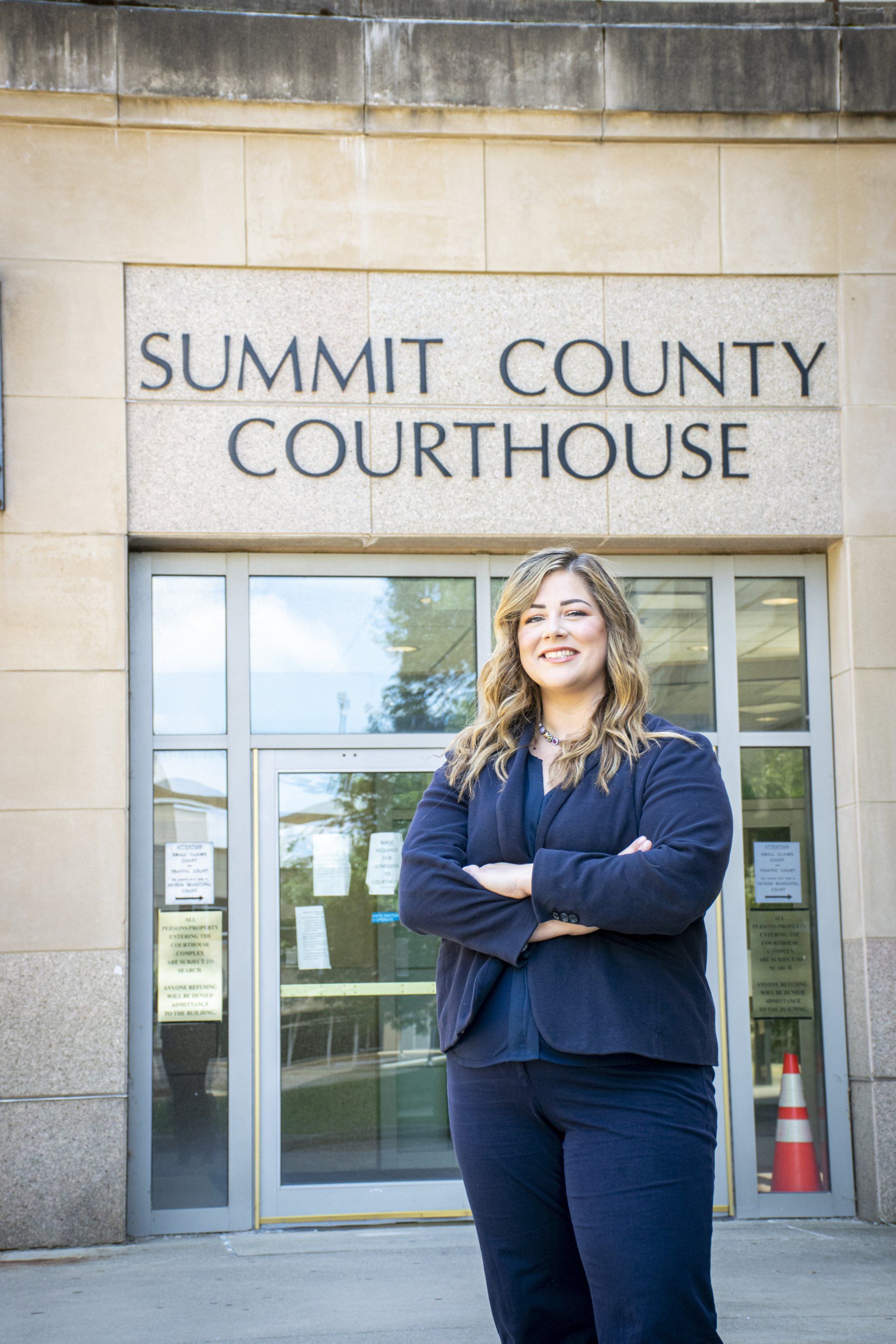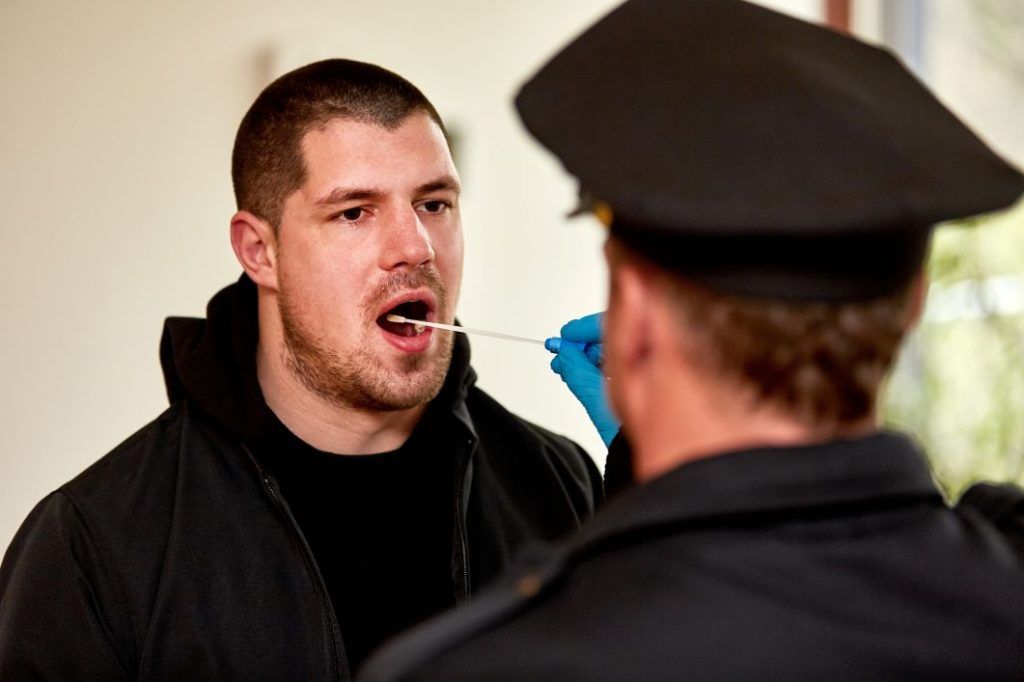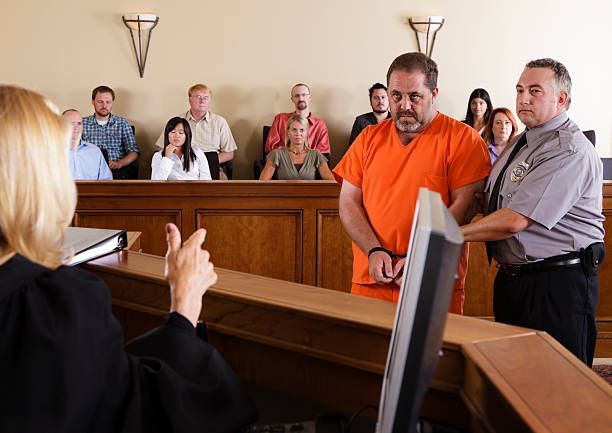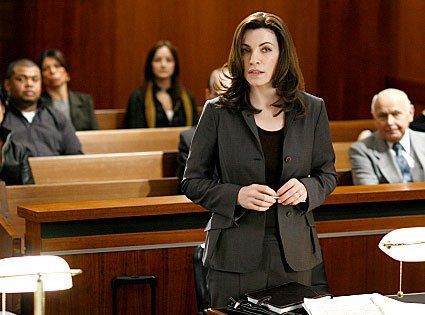The Risks of Refusal – The Consequences of Refusing to Take the Breath Test
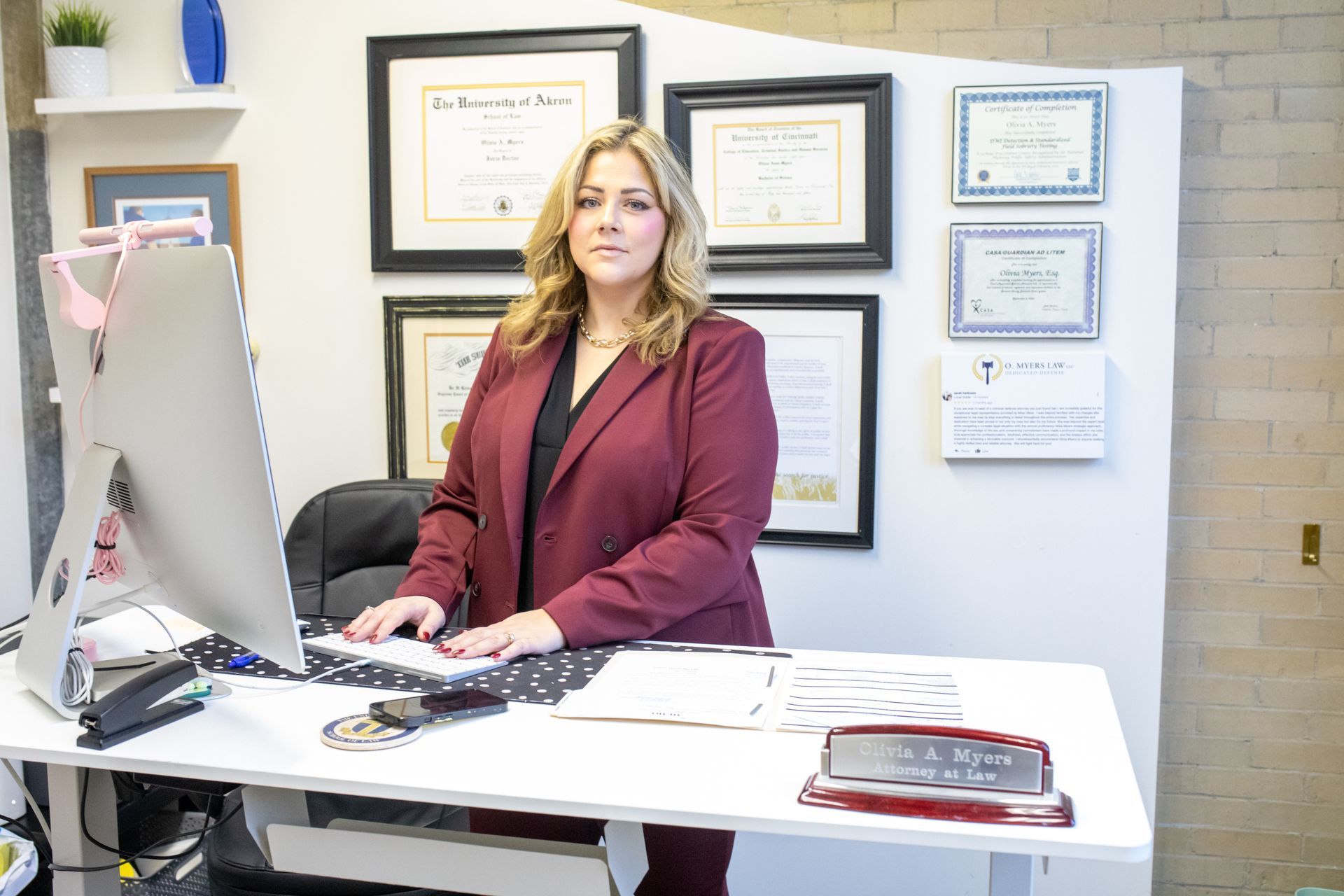
Attorney Olivia Myers in her office in downtown Akron
The Risks of Refusal – The Consequences of Refusing to Take the Breath Test
If you are lawfully accused of operating a motor vehicle while under the influence of alcohol, you have no constitutional right to refuse to take a reasonably reliable chemical test. Schmerber v. California (1966), 384 U.S. 757, 771. Although R.C. 4511.191 requires that one who has been arrested for the offense of operating a motor vehicle while under the influence of alcohol be advised of the consequences of his refusal to submit to chemical testing, and R.C. 4511.193 sets forth certain requirements for the immediate suspension and seizure of an operator's license or permit, these rights and requirements are statutory and have been held to not be of constitutional dimension.
Proceedings taken pursuant to R.C. 4511.191 are civil and administrative in nature and are independent of any collateral criminal proceedings instituted pursuant to R.C. 4511.19. Hoban v. Rice (1971), 25 Ohio St.2d 111, 267 N.E.2d 311. And while the failure to properly inform a defendant of the consequences of a refusal to submit to testing[1] may very well preclude the suspension of his license under R.C. 4511.191 and R.C. 4511.193, there is no provision in R.C. 4511.19 that requires compliance with implied consent procedures as a condition of the admissibility of chemical test results in DUI prosecutions.
Accordingly, Ohio Courts have held that the consequences of refusing and/or submitting to chemical testing does not require the exclusion of the chemical test results in the criminal prosecution brought pursuant to R.C. 4511.19 and, therefore, suppression of the test results is not a proper remedy. See State v. Tramonte, 1993 Ohio App. LEXIS 4090, *6-7, 1993 WL 323635 (6th Dist.).
And the news does not improve if you have had prior arrests for DUI. The statute mandates that individuals who have been previously convicted of driving under the influence in the past twenty years cannot (1) operate a vehicle under the influence of alcohol, and (2) refuse to take a chemical test after being arrested and asked by law enforcement to submit to a chemical test after being advised of the consequences of refusal in accordance with section 4511.192 of the Revised Code. See R.C. 4511.19(A)(2).
R.C. 4511.192(A) provides that a person "must submit to the chemical test or tests, subsequent to the request of the arresting officer, within two hours of the time of the alleged violation;" however, this statute has been construed against the accused driver and has not provided a method of arguing that the refusal is invalid or inadmissible.[2]
The moral of this story is that if you have been pulled over for an alleged traffic violation, refusing to take the breath test is fraught with bad consequences. It does not mean that you cannot fight the charge. The initial stop and detention can be challenged. The administration of field sobriety tests and the administration of the breath test can be challenged, but you need an experienced criminal defense attorney, like Olivia Myers to mount a strong and substantial defense to the charges.
REFERENCES
[1] In their entirety, the warnings to be read to suspects from
BMV form 2255 are as follows:
CONSEQUENCES OF TEST AND REFUSAL (R.C. 4511.192) (MUST BE READ TO OVI/PHYSICAL CONTROL OFFENDER)
"You now are under arrest for (specifically state the offense under state law or a substantially equivalent municipal ordinance for which the person was arrested) operating a vehicle under the influence of alcohol, a drug, or combination of them; operating a vehicle while under the influence of a listed controlled substance or a listed metabolite of a controlled substance; operating a vehicle after underage alcohol consumption; or having physical control of a vehicle while under the influence.[sic] "If you refuse to take any chemical test required by law, your Ohio driving privileges will be suspended immediately, and you will have [**5] to pay a fee to have the privileges reinstated/If you have a commercial driver license and refuse to submit to the test or tests you will immediately be placed out-of-service for twenty-four hours; you will be disqualified from operating a commercial motor vehicle for a period of not less than one year; and you will be required to surrender your commercial driver license to me."
"If you have a prior conviction of OVI, OVUAC, or operating a vehicle while under the influence of a listed controlled substance or a listed metabolite of a controlled substance under state or municipal law within the preceding twenty years, you now are under arrest for state OVI, and if you refuse to take a chemical test, you will face increased penalties if you subsequently are convicted of the state OVI."
"If you have previously pled guilty or been convicted of two or more OVI'S [sic], OVUAC's, or equivalent offenses in the previous six years, or pled guilty or been convicted of five or more OVI'S [sic], OVUAC's, or equivalent offenses in the previous twenty years, or pled guilty or been convicted of a felony of any of the above violations, and you refuse to submit to a chemical test required by law, I am [**6] authorized to use whatever reasonable means are necessary to ensure that you submit to a chemical test." (Read this part unless the person is under arrest for solely having physical control of a vehicle while under the influence.) "If you take any chemical test required by law and are found to be at or over the prohibited amount of alcohol, a controlled substance, or a metabolite of a controlled substance in your whole blood, blood serum or plasma, breath, or urine as set by law, your Ohio driving privileges will be suspended immediately, and you will have to pay a fee to have the privileges reinstated. [sic]
"If you take a chemical test, you may have an independent chemical test taken at your own expense."
CONSEQUENCES OF TEST AND REFUSAL — OUT-OF- SERVICE (R.C. 4506.17) (MUST BE READ IN ADDITION TO THE ABOVE TO AN OFFENDER WHO IS THE HOLDER OF A COMMERCIAL DRIVER LICENSE OR IS DRIVING A COMMERCIAL VEHICLE)
"I am a law enforcement officer; I have probable cause to stop or detain you. After investigating the circumstances, I have probable cause to believe you were operating a motor vehicle in violation of section 4506.15 of the Ohio Revised Code. I request that you submit to a test or tests of your blood, breath, or urine for the purpose [**7] of determining your alcohol concentration or the presence of any controlled substance. If you refuse to submit to the test or tests you will immediately be placed out- of-service for twenty-four hours; you will be disqualified from operating a commercial motor vehicle for a period of not less than one year; and you will be required to surrender your commercial driver license to me."
State v. Wielinski, 2019-Ohio-677, P6, 2019 Ohio App. LEXIS 729, *4-7, 2019 WL 952043
[2] Ohio Courts have held the following: Thus, the purpose of the two-hour requirement is to deter the obstinate driver, one who engages in behavior to "delay or obstruct the chemical testing" so as to run out the three-hour clock and prevent the results of the test from being admitted into evidence. State v. Brabant, 12th Dist. Clermont No. CA2010-04-031, 2011-Ohio-161, ¶ 16. If a refusal must occur within the two-hour window to be valid, the accused [***9] could easily circumvent the law by the passage of time. In addition to the plain language of the statute, it is well established that the two-hour time period "is irrelevant * * * where appellant explicitly refused to take the breath test." (Emphasis sic). Id. at ¶ 15. If refusal is relevant, then it does not matter if appellant refuses before or after the statutory two-hour period. State v. Barnhart, 6th Dist. Huron No. H-10-005, 2011-Ohio-2693, ¶ 17; State v. Marsh, 7th Dist. Belmont No. 04 BE 18, 2005-Ohio-4690, ¶ 46 (finding it "wholly irrelevant" when the officers asked appellant to submit to the tests). The Ohio Supreme Court has also found that "a person arrested for operating a vehicle under the influence of alcohol who refuses to submit to a chemical test, even though the test is requested more than two hours after the alleged violation, is subject to the implied consent law * * * ." Cline v. Bureau of Motor Vehicles, 61 Ohio St. 3d 93, 99, 573 N.E.2d 77 (1991). State v. Keith, 2022-Ohio-3515, P15-P18, 197 N.E.3d 1023, 1027-1028, 2022 Ohio App. LEXIS 3325, *6-9, 2022 WL 4666154.
Blog by Attorney Olivia A. Myers, published February 6, 2025
